
We want to plot direction fields of first order differential equations defined by means of dydx=F(x,y), or of {dxdt=G(x,y)dydt=F(x,y)
In both cases, we need to load package drawdf,
load("drawdf")$
First example is the differential equation dydx=exp(−x)+y, where the independent and dependent variables are x and y, respectively.
drawdf(exp(-x)+y)$
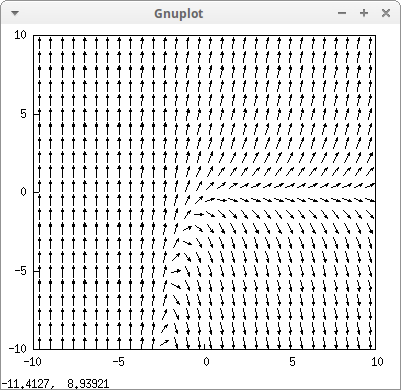
In case we work with other variables, it's necessary to explicitly declare them. For example, the direction field defined by dydt=cos(−t)+y, is plotted as follows,
drawdf(cos(-t)+y, [t,y])$
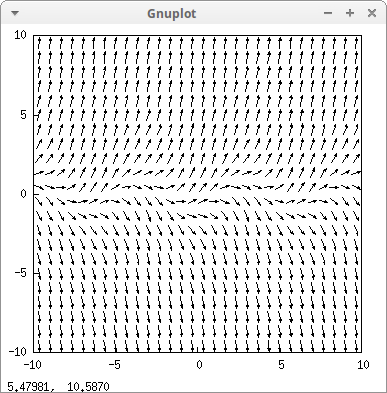
The default plotting range is [−10,10]×[−10,10], but it's possible to change it,
drawdf(cos(-t)+y, [t,0,10], [y,-2,2])$
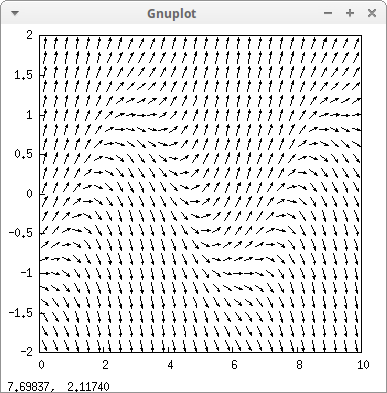
We can add to the direction field the trajectory passing through a particular point, (6,1),
drawdf( cos(-t)+y, [t,0,10], [y,-2,2], soln_arrows = true, soln_at(6,1))$
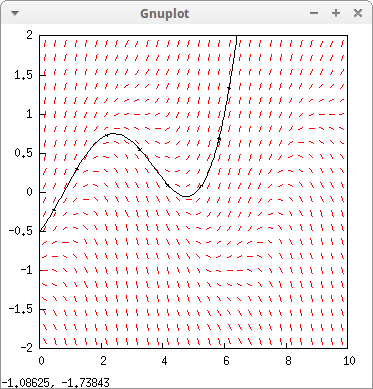
We can make use of ordinary draw package options to costumize the plot,
drawdf( cos(-t)+y, [t,0,10], [y,-2,2], line_width = 3, color = blue, solns_at([6,1], [4,-1]), color = yellow, background_color = light_gray, soln_at(9,-1) ) $

To change the number of columns and rows in the grid, use option field_grid. Also, setting field_degree=2 forces arrows to be substituted by quadratic splines,
drawdf( cos(-t)+y, [t,0,10], [y,-2,2], field_degree = 2, field_grid = [15,10], line_width = 3, color = blue, solns_at([6,1], [4,-1]), color = yellow, background_color = light_gray, soln_at(9,-1), /* Plot interesting points */ points_joined = false, color = black, point_type = filled_circle, point_size = 1.5, points([[6,1], [4,-1], [9,-1]]), /* Labels and title */ xlabel = "t", ylabel = "y", title = "Direction field of single diff. eq.")$
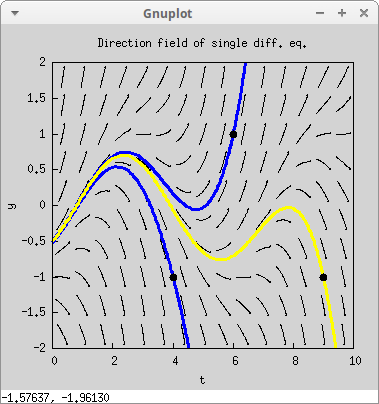
Let's now try the system {dxdt=ydydt=−9sin(x)−y5
drawdf([y,-9*sin(x)-y/5], [x,1,5], [y,-2,2])$
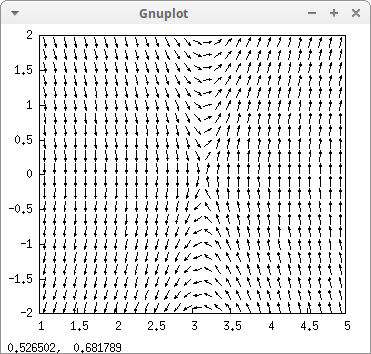
Now, the direction field for {dxdt=x(1−x−y)dydt=y(34−y−x2)
drawdf(
[x*(1-x-y), y*(3/4-y-x/2)], [x,0,1.1], [y,0,1],
field_degree = 2,
duration = 40,
soln_arrows = true,
point_at(1/2,1/2),
solns_at([0.1,0.2], [0.2,0.1], [1,0.8], [0.8,1],
[0.1,0.1], [0.6,0.05], [0.05,0.4],
[1,0.01], [0.01,0.75]))$
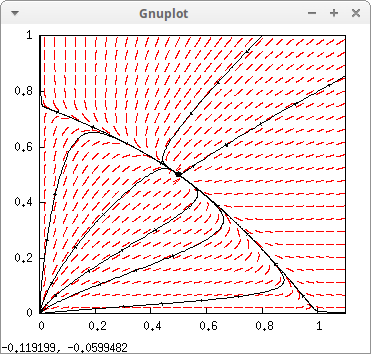
Finally, for more information on package drawdf, write
? drawdf
© 2011-2016, TecnoStats.